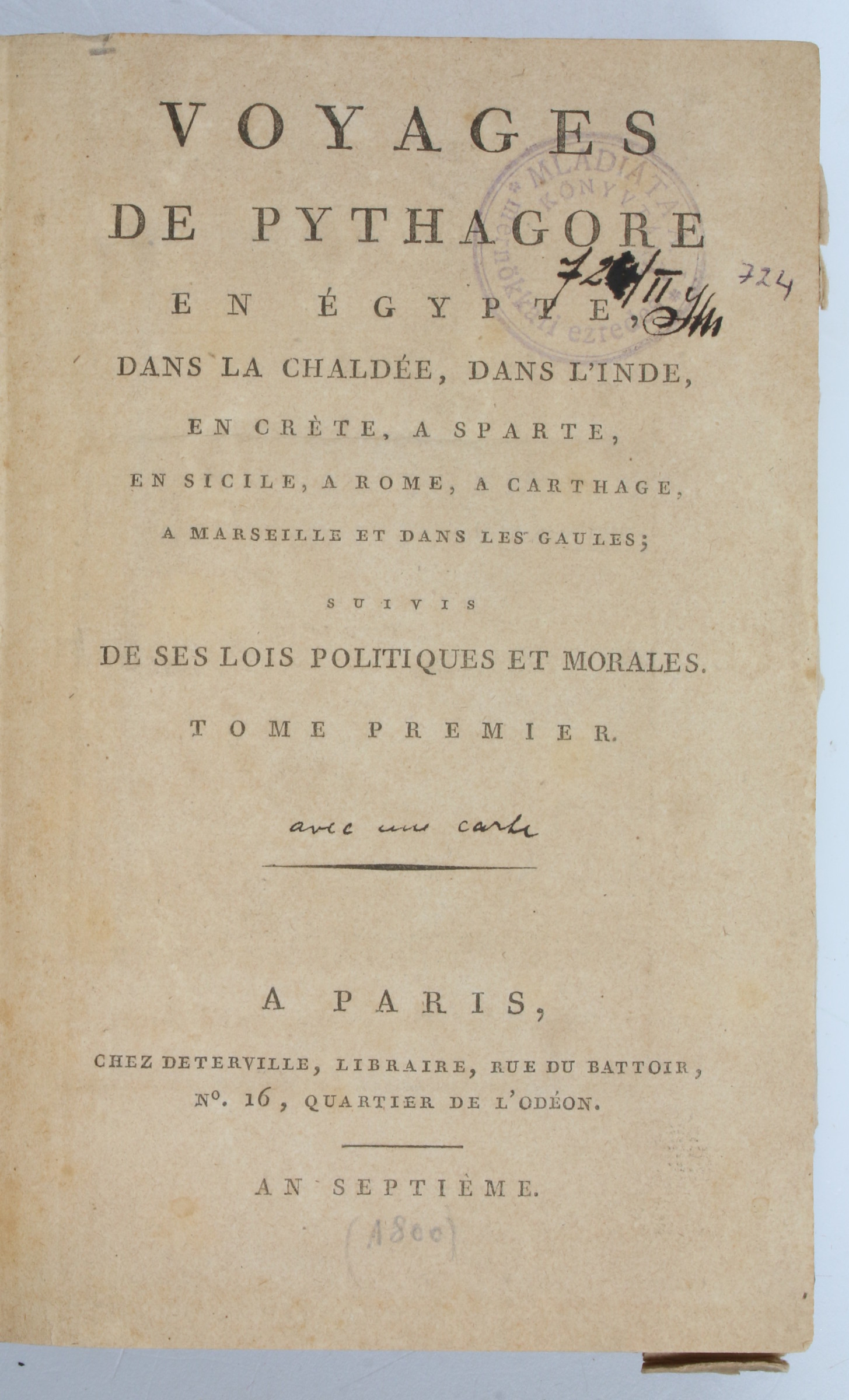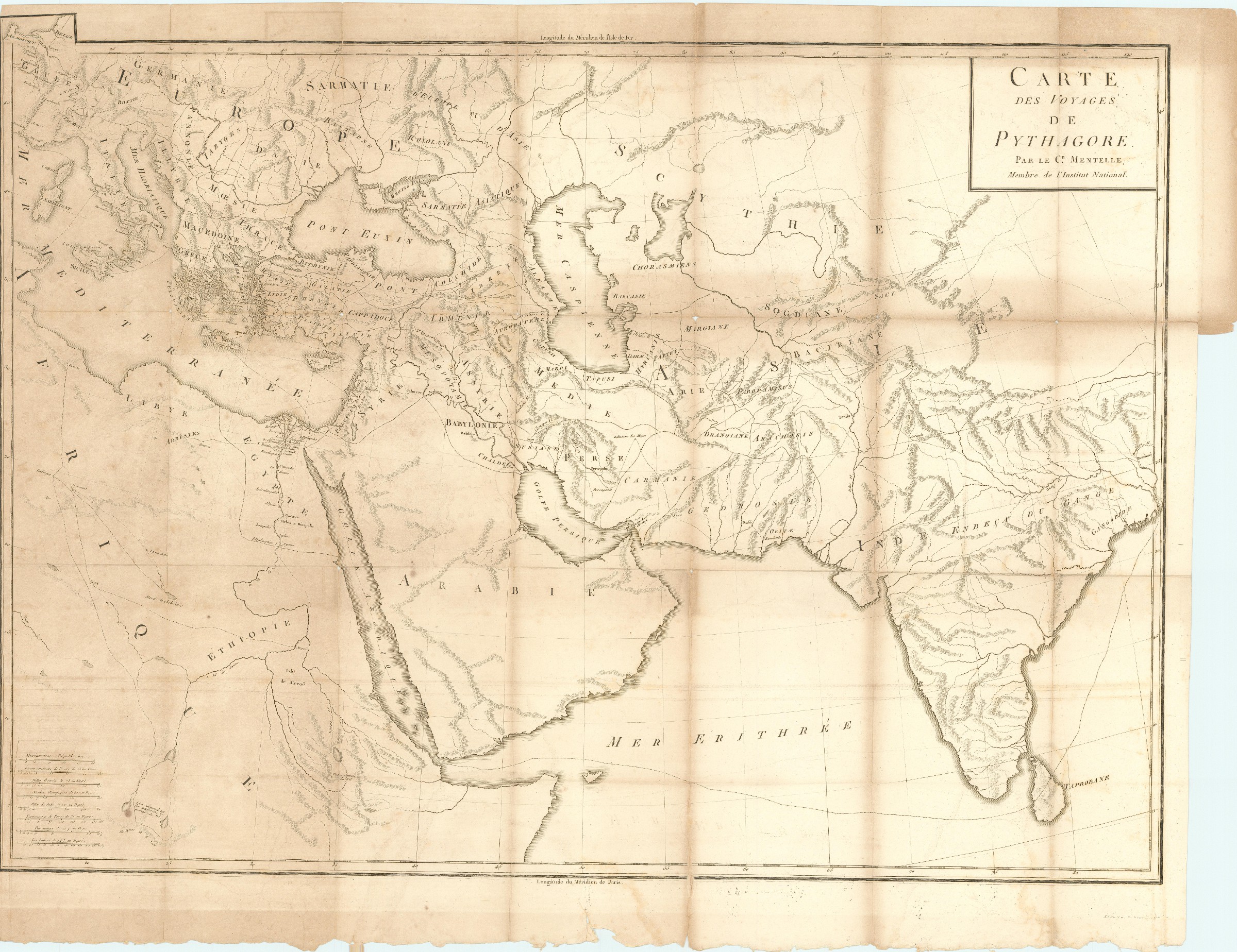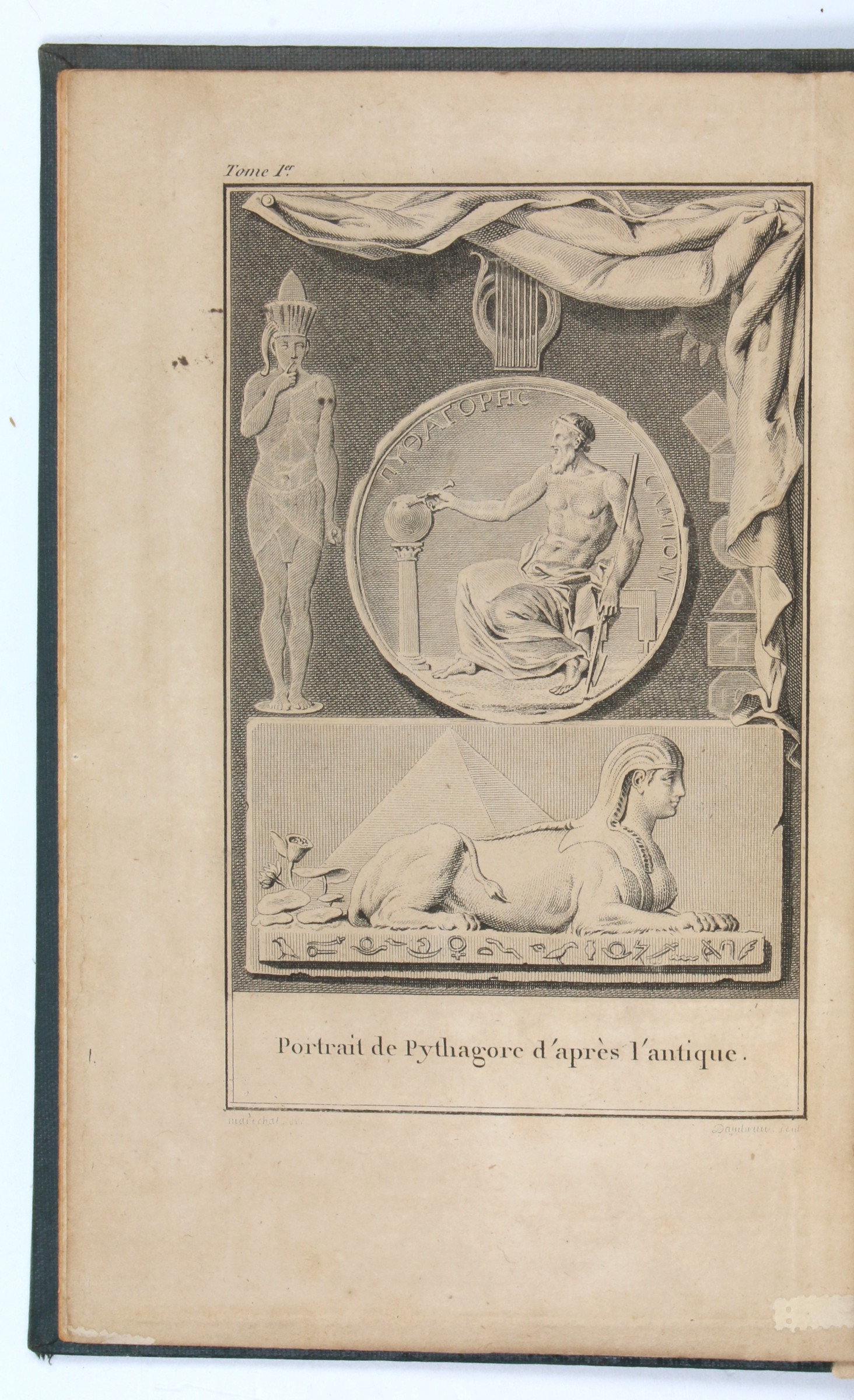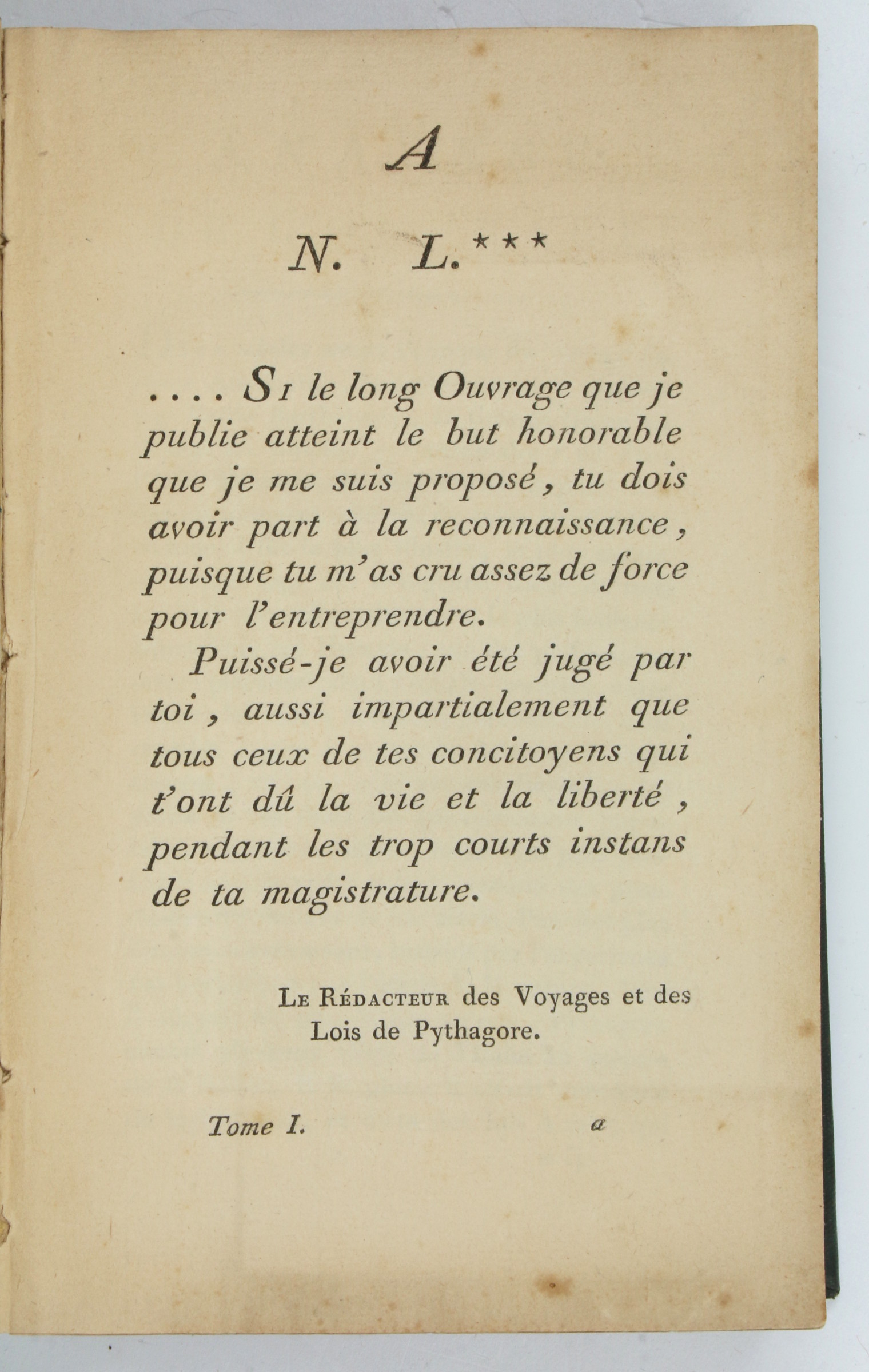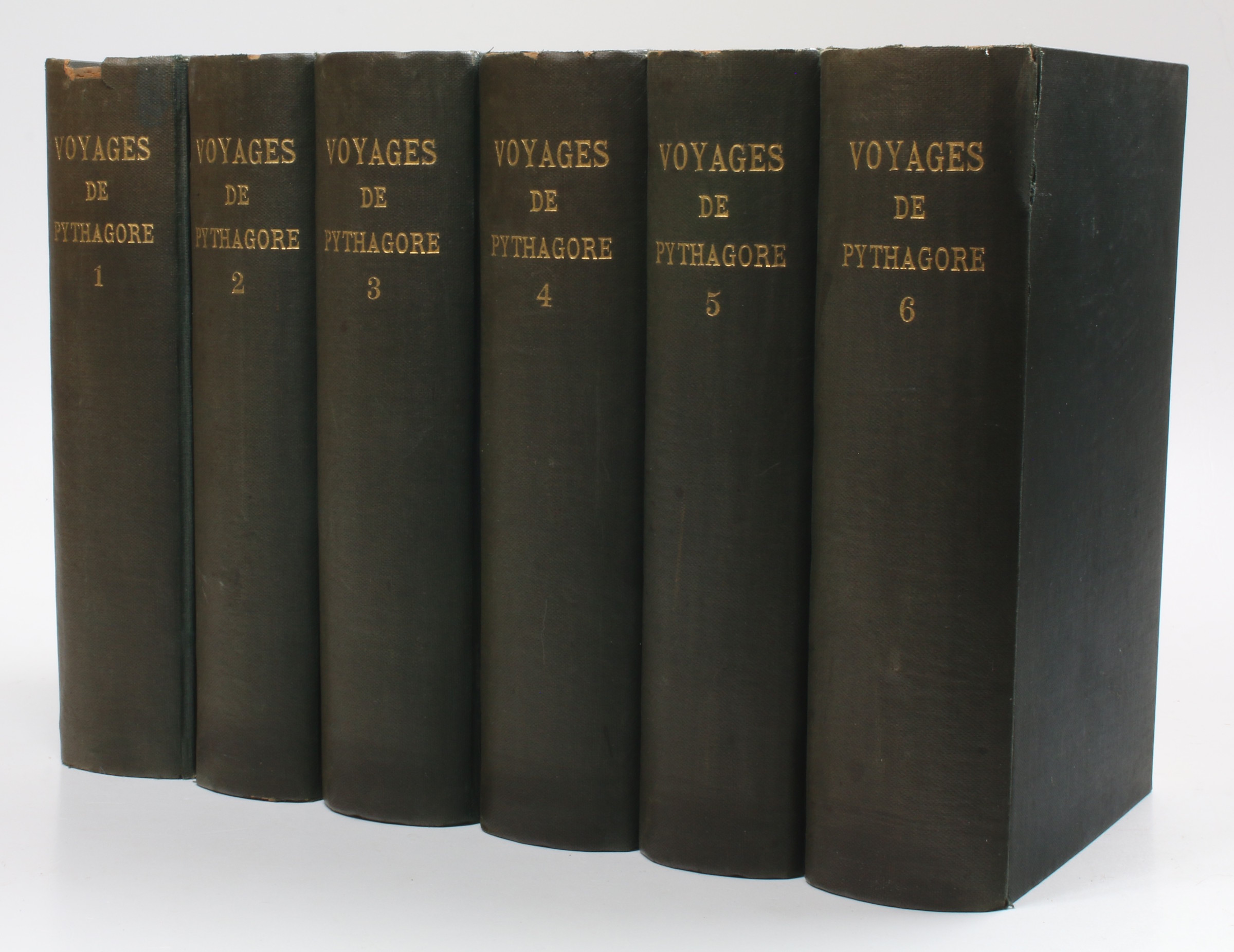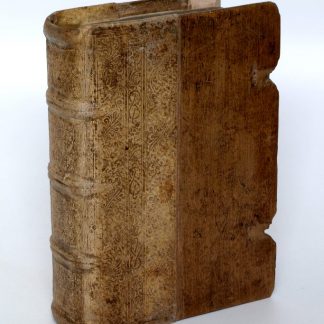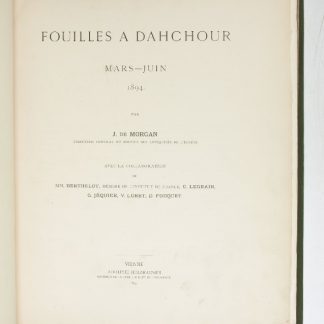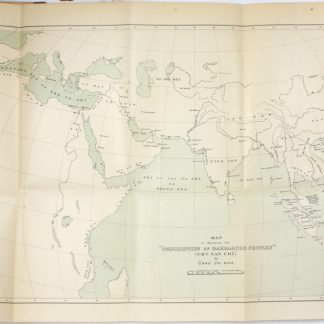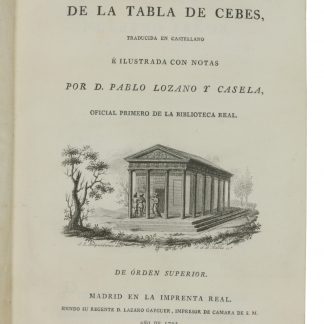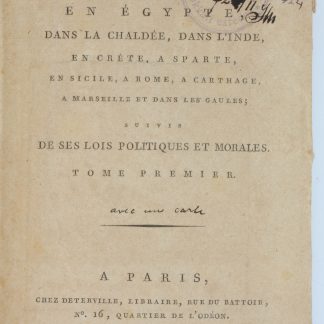With large folding map of Arabia, West Asia, and India
Voyages de Pythagore en Egypte, dans Chaldee, dans l'Inde, en Crete, a Sparte, en Sicile, a Rome, a Carthage, a Marseille et dans les Gaules [...].
6 volumes. 8vo. I: (4), XXIV, 456 pp. With large folding map (728 x 570 mm), loosely inserted. II: (4), 471 pp. III: (4), 448 pp. IV: (4), 464 pp. V: (4), 455 pp. VI: (4), 489, (1 blank), (4) pp. Each with engraved frontispiece. Later dark green cloth with title in gilt on spine, edges marbled.
€ 1,500.00
First edition of this important and very influential study of Pythagoras' thought and its Egyptian roots by the radical French Republican writer Sylvain Maréchal (1750-1803). "Ouvrage le plus important sur Pythagore et ses doctrines; le tome VI est entierement consacre aux symboles et aux lois de Pythagore" (Caillet). Pythagoras is traditionally thought to have received most of his education in the Near East, and indeed modern scholarship has shown that the culture of Archaic Greece was heavily influenced by Levantine and Mesopotamian cultures. Like many other important Greek thinkers, Pythagoras was said to have studied in Egypt, a tradition that by the time of Isocrates in the fourth century BCE was already taken as fact.
A handsome set published during the First Republic, the first volume including a large folding map titled "Carte des Voyages de Pythagore" by the French geographer Edme Mentelle (1730-1816), member of the Institut National. Mentelle's map shows almost the entirety of the Indian subcontinent and West Asia, the Caspian and the Black Sea ("Pont Euxin"), the Arabian Peninsula, Northeast Africa, and the Western Mediterranean, labelled with ancient names. Mentelle had taught geography to the French royal family prior to the Revolution, and designed a globe on display today at Versailles; however, he was a strong supporter of the Revolution and turned his expertise to Republican academia. Maréchal himself was known for his radical writing on agrarian socialism and atheism, as well as his support for female education and interest in history.
Folding map detached from binding and lightly worn. One frontispiece repaired, light wear and otherwise in good condition. From the library of the Hungarian naval officer and shipbuilding engineer János Mladiáta (1880-1957) with his ownership stamp to title-pages.
Brunet III, 1410. Caillet 7126. Dorbon-Ainé 2949 ("Rare").

